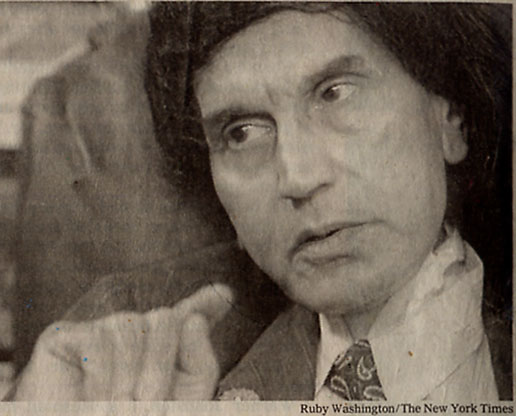Back to Stopdown home page,
click here
Back to Magazine home page,
click here
Doctor Feels Better Than He Looks
(Article by Joyce Wadler for NY Times we don't know
date of issue, approx. Jan. 2002. We condensed the article.)
In India,a child born with a cleft lip cannot suckle and will die of
starvation, or will be abandoned by the parents or be unable to marry. A force
in the favor of such children is Dr. Sharadkumar Dicksheet, a surgeon who does
35 to 40 operations, sometimes 50, he claims, in a ten hour day on
disfigured children of India, during the six months a year he spends there
working there for free. A cleft lip takes him 15 to 20 minutes, drooping eyelids
5 to 7 minutes, crossed eyes 3 minutes. Four patients may lie anesthetized in
his operating room at one time. American doctors who go to India to work with
him do 7 to 10 operations in a day. He says they're slow. But then it might be unwise
for other surgeons to compete with a man who does not refresh himself with fluids while operating so he won't
have to waste time going to the toilet.
71 year old Dr. Dicksheet, for all his
stamina, does not appear so strong. Two heart attacks have destroyed 80% of
his heart muscle, and he is unable to walk more than a few steps without a
wheelchair. Cancer of the larynx which doctors said was terminal in 1982, giving
him a year to live, has left him dependent on a voice box to speak.
He works for the India Project, a group of traveling clinics that perform facial
reconstruction on poor children, and is revered in India for founding this
project 33 years ago.
|
One of a postmaster's six children, he is a religious man, influenced by Ghandi, who
lived in his hometown, Wardha. Speaking of Ghandi, he says, "I used to see him
walking every evening when I was 7, 8, 9 years old. He was a simple person. He
cooked his own food, the dhoti he wore, he washed it himself every day. I
did not understand his philosophy of life, that service to God is through
service to human beings, not in a church or a temple, until I was much older."
After graduating from medical school in India Dr. Dicksheet moved to
the U.S. for more training, and worked in Fairbanks, Alaska, where he also
skied, played tennis, got a pilot's license and sang on the radio. But his
fun-loving, social, "nose-job days" were interrupted by a 1978 car accident that
left the right side of his body paralyzed. He had to teach himself to operate
with his left hand. Soon after he recovered he was diagnosed with cancer
of the larynx with metastases. It took him five years to recover his speech.
|
|
 |
|
Dr. Dicksheet, who lives and practices in New York City when not in India,
maintains a simple life. Speaking of his charcoal gray pinstripe suite, he says,
"This suit was made in 1993. I wear the same suit every day for eight years, the
same shirt, the same tie. Then every two weeks I get it dry cleaned. The suit is
just to go out. " Around the house he wears traditional Indian clothing. He
explains, "This is my life, very simple. One suit, one hairbrush, one
toothbrush. One! one! one!"
In this he may have been influenced by Ghandi's devotion to simplicity in
life style that he observed as a child. But unlike his philosophy of service to
humanity, Ghandi's politics did not influence Dr. Dicksheet. Asked if he ever
heard Ghandi speak, he explained, "He used to talk about politics, which I never
understood. I've never been interested in politics."